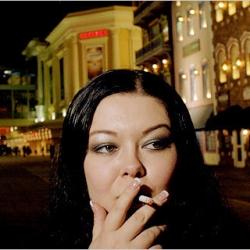
Smoking bans have gone into effect in over 25 US states, though casino owners say smoke-free resorts hurt business and cost jobs.
As of June 1, 2018, the state of Louisiana has passed a new bill stating it is illegal on a statewide basis to smoke in bars, sports arenas, and casinos. A previous ordinance in 2007 extended the statewide smoke-free law to most businesses, but the latest amendment extends the smoke ban to previously exempt businesses, including bars and casinos.
The 2018 smoke ban extension was supported by a wide coalition of public policy groups and activists, including the Smoke-Free East Baton Rouge Coalition, the East Baton Rouge Metro Council, representatives from the office of Mayor Broome, and the BRPD.
Those groups held a joint press briefing at 10:30 a.m. on Friday, June 1 announcing that the newly passed bill will go into effect for some cities, such as Baton Rouge, immediately. Other cities do not have to comply with the law until January 2019.
Casinos and bars have long sought to keep their businesses open to smoking, because they believe smoking customers are more likely to stay longer – or come at all – if they can smoke while they gamble. The city of New Orleans already had a smoking ban in effect for bars and casinos.
2018 Louisiana Smoking Ban
Proponents of the smoking ban say they are protecting non-smoking bar and casino employees and players from second-hand smoke. City leaders in Baton Rouge joined together in an effort to protect those who have suffered from secondhand smoke and the subsequent health risks it involves. The bartenders, wait staff, dealers, and entertainers cannot tell their bosses they will not enter a smoking area, so presumably those employees are relieved to have the smoking ban.
Back in 2015, New Orleans passed legislation to ban all indoor smoking as well as the use of e-cigarettes as a way to protect their service industry workers and musicians from the harsh affects of secondhand smoke. Baton Rouge saw the change that was decided on back in August go into effect June 1 and the city is now free of smoking inside bars and casinos.
Smoking Ban Could Cost Jobs or Wages
Rep. Larry Bagley, R-Stonewall, said that though he quit smoking 40 years ago when his daughter’s health was at risk, he would still be leaning to vote against the measure. Bagley said, even though he would like to vote for the change, he owns a video poker establishment and he believes the ban will harm his business.
Bagley, the top taxpayer in his district, understands the argument for the other side: the smoking ban may have cost some bar and casino employees jobs, or harmed their ability to make as much pay as they otherwise would. If customers stop coming to their establishments, then those same bartenders, waiters, and dealers might lose hours.
Smoking Ban Reduces State Health Care Costs
On the other side of the argument, politicians say the smoking ban is going to reduce health care costs for the state – and thus for taxpayers. Opelouses Democratic State Rep. Dustin Miller said, “He’s the highest taxpayer in your area, but we’re going to continue to use his money to pay for treatments for asthma, treatments for emphysema, treatments for lung cancer.”
Miller said Louisiana sees nearly $1.89 billion in health care costs annually due to smoking-related deaths. The state representative said, “I am not attacking smokers, I’m not attacking business owners. I’m simply trying to be an advocate for the unintended effects of secondhand smoke.”
“The rights of a nonsmoker do not end where the rights of a smoker begin. No one should have to choose between their health and a paycheck.”
Smoke-Free Louisiana Campaign Coalition
According to Ashley Hebert, the government relations director at the American Heart Association Women of color are more susceptible to developing cardiovascular disease. Many women of color work in Louisiana casinos that telling them to just “get over it and get another job” isn’t realistic or fair and just should not even be an option, according to Hebert.
According to the Smoke-free Louisiana Campaign Coalition, smoking among adults has decreased. Adult smoking in 2013 saw 23.5 percent of adult smokers and just within two years that percent decreased to 22.8 percent in 2015-16. Ashley Hebert said, “It’s really not that easy for communities of color. What is easy is asking a smoker to step outside and smoke.”
Though, Louisiana’s smoking rate is still higher than the national smoking rate of 15.5 percent. Twenty-five states have already implemented comprehensive smoke-free laws that cover workplaces, restaurants and bars. Those states include the following: Arizona, California, Delaware, Hawaii, Illinois, Iowa, Kansas, Maine, Maryland, Massachusetts, Michigan, Minnesota, Montana, Nebraska, New Jersey, New York, North Dakota, Ohio, Oregon, Rhode Island, South Dakota, Utah, Vermont, Washington and Wisconsin.
Colorado, Connecticut, New Hampshire, New Mexico, and North Carolina also have policies in place that cover restaurants and bars, but not casinos.
